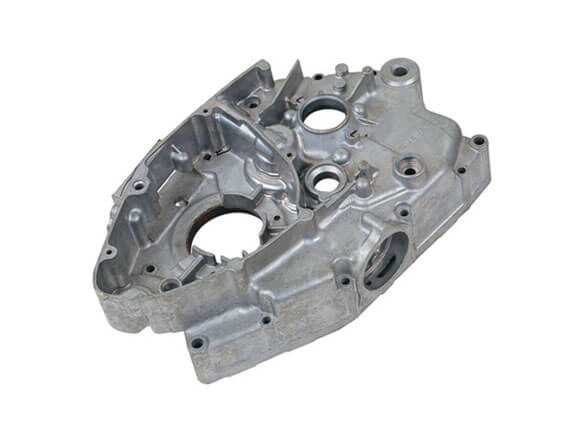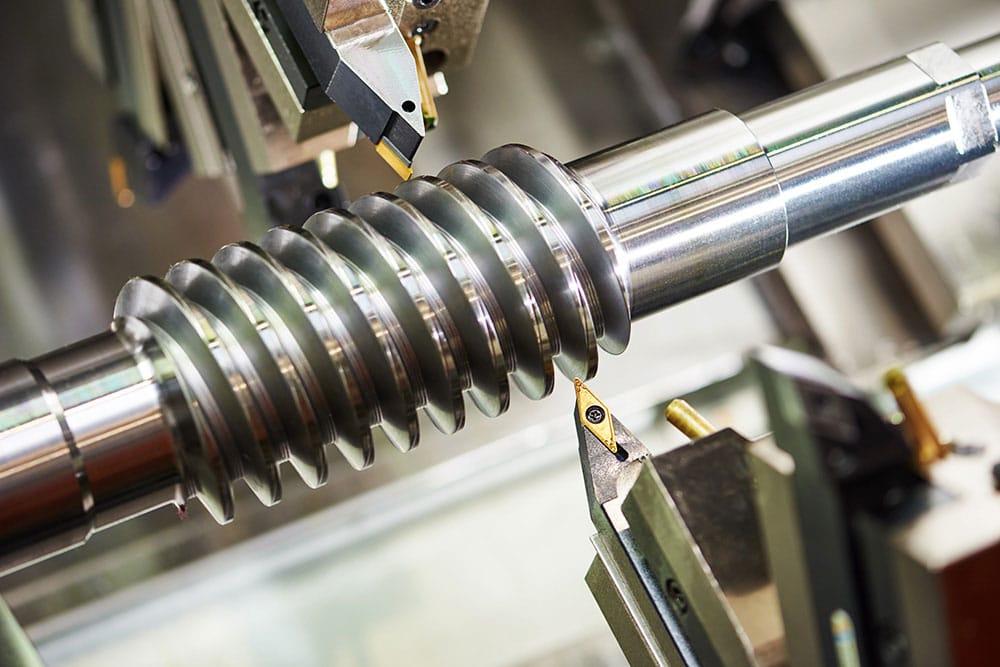Exactly How Light Weight Aluminum Casting Adds To Reliable Manufacturing Solutions
Light weight aluminum casting plays a necessary role in contemporary production. Its light-weight nature and deterioration resistance make it a preferred option for numerous sectors. Strategies such as die casting and sand casting enable the development of complex get rid of marginal waste. The combination of automation additional boosts production effectiveness. However, the ramifications of these developments expand past simple performance. Recognizing the wider impact discloses significant insights right into the future of manufacturing
The Benefits of Aluminum in Manufacturing
Different metals are used in manufacturing, aluminum stands out due to its one-of-a-kind residential or commercial properties that boost production performance and product efficiency. Its lightweight nature notably lowers transport expenses and power requirements in numerous applications. Light weight aluminum's outstanding corrosion resistance assurances durability and longevity, minimizing the demand for regular replacements and upkeep. This steel can be conveniently molded and formed, permitting versatile design choices that fulfill details industry requirements. Additionally, light weight aluminum exhibits premium thermal and electric conductivity, making it an excellent selection for applications calling for reliable warmth dissipation and electrical management. The recyclability of aluminum additionally plays an important role in sustainable production practices, as it can be recycled without shedding its integral homes. On the whole, the advantages of aluminum in making lead to set you back savings, improved item longevity, and a reduced environmental footprint, making it a recommended material in countless markets.
Secret Light Weight Aluminum Spreading Techniques
Light weight aluminum casting techniques are crucial for generating high-grade parts in numerous making processes. The main techniques consist of sand casting, die spreading, and investment spreading. Sand spreading includes creating a mold and mildew from sand, which enables large parts and intricate shapes. This strategy is often favored for its cost-effectiveness and adaptability. Pass away casting, on the various other hand, utilizes high-pressure to infuse molten light weight aluminum into steel molds, causing precise, uniform components appropriate for high-volume manufacturing. Financial investment spreading provides premium surface area finish and elaborate detail by utilizing a wax pattern that is dissolved to create the mold. Each of these techniques has specific applications and benefits, allowing suppliers to pick the most ideal approach based upon elements like manufacturing volume, material, and complexity specs. By recognizing these crucial strategies, producers can boost their production effectiveness and assure the honesty of their aluminum elements.
Effect On Automotive Sector
As the automotive sector progressively focuses on light-weight materials to boost fuel performance and efficiency, light weight aluminum casting has become an essential solution. This manufacturing procedure allows car manufacturers to generate complex components with decreased weight without compromising architectural honesty. By utilizing light weight aluminum casting, suppliers can produce components such as engine blocks, transmission real estates, and suspension parts that are not just lighter however also exhibit excellent thermal conductivity and deterioration resistance.
Furthermore, the adaptability of light weight aluminum casting techniques makes it possible for the production of detailed styles, promoting advancement in car looks and capability. As vehicles come to be extra technologically progressed, the ability to integrate functions like sophisticated safety systems and electrical drivetrains comes to be crucial.

Aerospace Applications of Light Weight Aluminum Casting
Light weight aluminum casting plays an essential duty in aerospace applications by making it possible for the manufacturing of light-weight architectural components that improve fuel performance. Additionally, the precision of aluminum casting permits the production of intricate engine parts, which are necessary for peak efficiency and reliability. This combination of lightweight materials and accurate engineering settings light weight aluminum casting as a crucial modern technology in the aerospace industry.
Lightweight Architectural Elements
In the quest for enhanced performance and performance in aerospace applications, light-weight architectural components have actually ended up being progressively essential. Light weight aluminum casting plays a pivotal duty in this endeavor, giving producers with the capability to produce components that are both light-weight and strong. The reduced density of aluminum enables for substantial weight decreases without endangering architectural stability, which is vital for aircraft performance and fuel performance. On top of that, aluminum castings can be crafted to satisfy particular style requirements, enabling the creation of intricate geometries that typical manufacturing techniques might have a hard time to attain. This convenience not only simplifies manufacturing processes however likewise adds to overall cost financial savings. As the aerospace market remains to emphasize sustainability, the need for lightweight light weight aluminum elements is anticipated to climb, even more progressing advancement in manufacturing.
Precision Engine Components
Producers progressively depend on aluminum spreading to produce precision engine components for aerospace applications, driven by the material's distinct homes. Light weight aluminum's lightweight nature read more substantially reduces general aircraft weight, enhancing fuel effectiveness and performance. Its superb corrosion resistance warranties long life in severe atmospheres, making it suitable for vital engine components. Furthermore, aluminum casting permits tight tolerances and elaborate designs, crucial for enhancing engine efficiency and reliability. The casting procedure likewise supports mass production, making it possible for makers to meet high demand while keeping top quality criteria. As aerospace modern technology proceeds to breakthrough, the role of light weight aluminum casting in producing precision engine parts will be critical in attaining higher efficiency and technology in aircraft layout and functionality.
Sustainability and Ecological Advantages
The growing focus on sustainability in manufacturing has actually placed light weight aluminum casting as a leading option for environmentally conscious manufacturing. This process makes use of recycled aluminum, which significantly minimizes power intake compared to primary light weight aluminum production. By leveraging scrap steel, suppliers can decrease their carbon impact and decrease waste, straightening with global sustainability goals.
Furthermore, light weight aluminum casting generates fewer dangerous discharges, adding to a cleaner environment. The lightweight nature of aluminum also boosts fuel performance in transportation applications, even more promoting environment-friendly methods.
The resilience and deterioration resistance of light weight aluminum lead to longer product life-spans, lowering the demand for regular replacements and saving resources. As markets significantly prioritize sustainable choices, light weight aluminum casting stands out as an innovative method that not only meets production demands yet additionally sustains ecological stewardship. This dedication to sustainability settings light weight aluminum spreading as a critical gamer in the change towards a greener manufacturing landscape.
Price Effectiveness in Production
Cost performance is a significant advantage of light weight aluminum spreading, enhancing its sustainability benefits - Aluminum Foundry. The procedure of light weight aluminum casting permits the manufacturing of intricate forms with marginal waste, which is especially important in a competitive production setting. Using aluminum minimizes energy expenses, as it has a reduced melting point compared to various other steels, bring about minimized power intake throughout manufacturing
Additionally, aluminum's light-weight properties add to lower delivery and managing expenses, further boosting total cost performance. The resilience and rust resistance of aluminum cast items also imply that they call for much less upkeep and substitute gradually, resulting in lasting cost savings for producers.
Improvements in casting technologies, such as boosted mold designs and automation, have structured manufacturing processes, lowering labor costs and increasing result effectiveness. Overall, cost effectiveness in aluminum spreading plays a crucial role in optimizing manufacturing procedures and sustaining competitive rates strategies.
Future Patterns in Light Weight Aluminum Spreading
The future of light weight aluminum spreading is progressively formed by improvements in automation and sustainable product innovations. Automation modern technologies are expected to enhance effectiveness and precision in the casting procedure, while sustainable methods aim to decrease environmental effect. With each other, these fads assure to redefine manufacturing requirements and practices within the aluminum spreading sector.
Automation in Light Weight Aluminum Casting
Accepting automation is transforming aluminum spreading procedures, leading the way for enhanced efficiency and precision. Automated systems simplify production by decreasing human treatment, minimizing errors, and boosting throughput. Technologies such as robotic arms and computer mathematical control (CNC) makers allow for exact and regular shaping of light weight aluminum components. Additionally, smart sensors check various parameters in real time, making certain ideal conditions throughout the spreading process. This integration of automation not just shortens preparations however likewise improves item top quality by maintaining tighter resistances. As producers significantly take on these advanced modern technologies, the aluminum spreading market is set to experience considerable improvements in functional effectiveness, cost-effectiveness, and competitiveness in the international market.
Sustainable Product Innovations

Often Asked Questions
What Kinds Of Light Weight Aluminum Alloys Are Generally Utilized in Casting?
Generally used light weight aluminum alloys in casting include 356, 380, and 413. These alloys are preferred for their superb fluidness, stamina, and corrosion resistance, making them ideal for a range of commercial applications.
Exactly How Does Aluminum Spreading Contrast to Other Metal Spreading Techniques?
Light weight aluminum casting generally supplies lower weight, premium corrosion resistance, and better thermal conductivity compared to various other metal casting methods. Furthermore, it enables complex designs and faster production cycles, enhancing general manufacturing efficiency and efficiency.
What Industries Benefit A Lot Of From Aluminum Spreading?
The vehicle, aerospace, and electronic devices sectors profit most from aluminum casting. These industries utilize its light-weight, corrosion-resistant residential or commercial properties to improve performance, lower gas consumption, and enhance overall product performance, making light weight aluminum spreading increasingly vital.
Exist Particular Design Limitations With Aluminum Spreading?
Yes, aluminum casting has design constraints, consisting of restrictions on wall surface density, facility geometry difficulties, and potential issues with accomplishing tight tolerances (Aluminum Foundry). These variables can affect the general strength and capability of the end product
Just How Is Quality Assurance Maintained in Aluminum Spreading Processes?
Quality assurance in light weight aluminum casting procedures is kept through extensive evaluations, adherence to standard treatments, and using sophisticated modern technologies. Regular tracking assurances dimensional accuracy, surface area honesty, and product uniformity throughout manufacturing, promoting total reliability.
As the automotive industry significantly prioritizes light-weight materials to enhance gas efficiency and performance, aluminum casting has actually arised as an essential solution. Aluminum casting plays an important duty in aerospace applications by enabling the production of lightweight structural parts that boost fuel performance. Expense performance is a substantial advantage of aluminum casting, matching its sustainability advantages. Embracing automation is transforming aluminum casting processes, paving the way for boosted efficiency and precision. Recycled light weight aluminum use has gotten grip, significantly lowering energy intake compared to main light weight aluminum manufacturing.